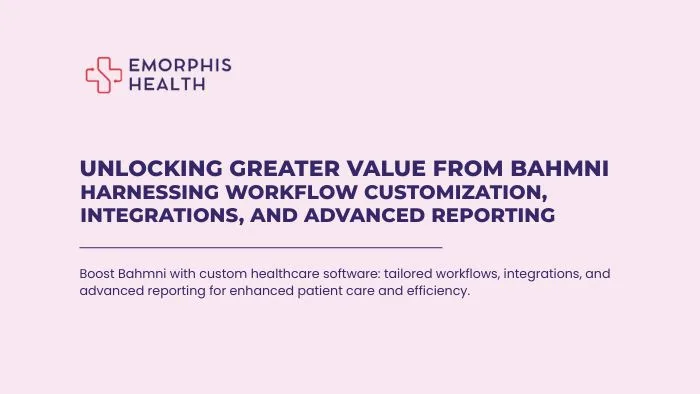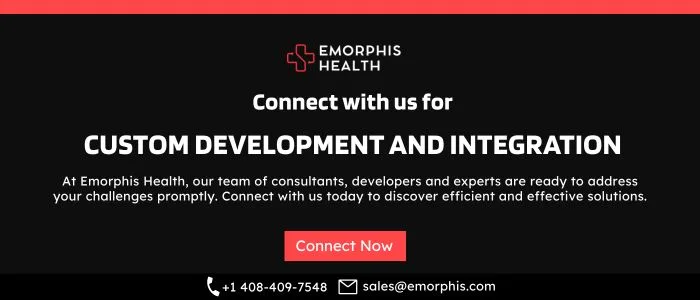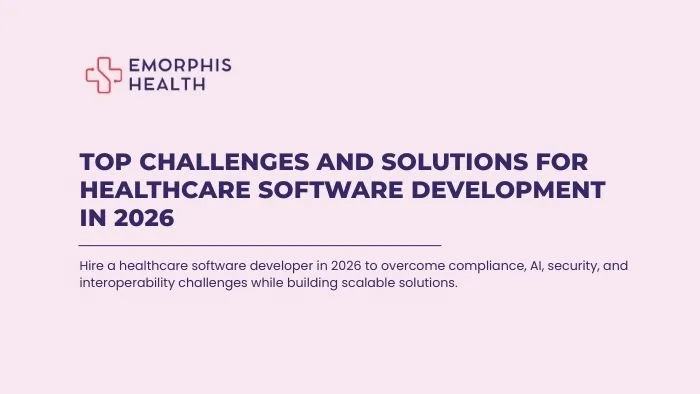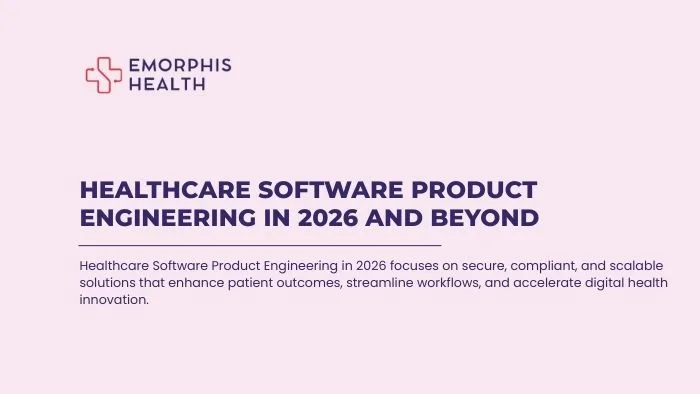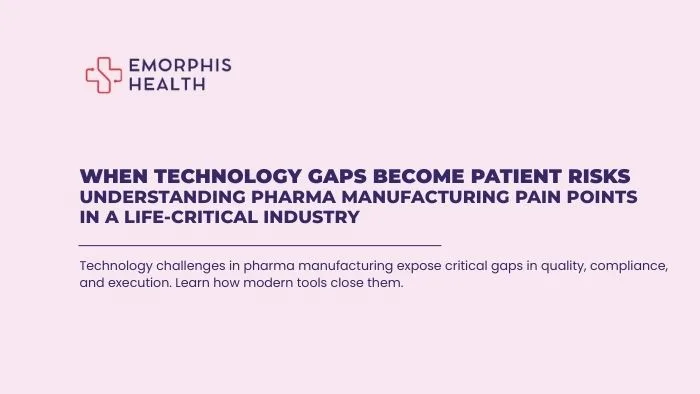Introduction
See Contents
- 1 Introduction
- 2 Why Optimize Workflow Customization for Enhanced Efficiency
- 3 Why Workflow Customization Matters
- 4 Key Customization Features in Bahmni
- 5 Practical Tips for Workflow Customization
- 6 How to Leverage Integrations to Connect Systems and Improve Data Flow
- 7 Why Reporting Matters
- 8 AI Integration in Bahmni: Transforming Healthcare Delivery
- 9 Custom Development for AI: Tailoring Bahmni to Your Specific Needs
- 10 Conclusion: Empowering Healthcare Providers with Bahmni’s Full Potential
In today’s rapidly evolving healthcare landscape, delivering efficient, patient-centered care while managing operational challenges is paramount. Bahmni, an open-source Electronic Medical Record (EMR) and Hospital Information System (HIS), is a game-changer for healthcare providers, especially in low-resource settings. Designed to streamline clinical workflows, enhance data management, and improve patient outcomes, Bahmni has been adopted in over 500 healthcare facilities across 50 countries, managing millions of patient records. Its modular architecture, built on OpenMRS, OpenELIS, and Odoo, offers unparalleled flexibility to meet diverse healthcare needs.
Bahmni’s true strength lies in its ability to be customized, integrated, and enhanced with advanced reporting and artificial intelligence (AI). By tailoring workflows, connecting disparate systems, generating actionable insights, and leveraging AI, healthcare providers can unlock Bahmni’s full potential to transform care delivery. This blog explores how healthcare organizations can maximize Bahmni’s value through workflow customization, seamless integrations, advanced reporting, and AI-driven innovations. We’ll also highlight how Emorphis, a leading healthcare IT solutions provider, empowers organizations to achieve these goals with expert implementation and tailored development.
Whether you’re a hospital administrator seeking operational efficiency, an IT professional aiming for interoperability, or a decision-maker exploring AI’s potential, this post provides practical strategies to harness Bahmni’s capabilities. Let’s dive into how customization, integrations, reporting, and AI can elevate your healthcare delivery to new heights.
Why Optimize Workflow Customization for Enhanced Efficiency
Workflow customization is at the heart of Bahmni’s ability to adapt to the unique needs of healthcare facilities. From patient registration to discharge planning, tailored workflows streamline processes, reduce administrative burdens, and enhance patient care. For example, a 2022 study in rural Indian hospitals showed that customized EMR workflows reduced patient wait times by 28%, highlighting the impact of optimization.
Why Workflow Customization Matters
Healthcare facilities vary widely in their operational models, patient demographics, and resource availability. A one-size-fits-all EMR often fails to address specific challenges, such as managing high patient volumes in outpatient clinics or tracking chronic conditions in community health centers. Bahmni’s customizable workflows allow providers to align the system with their processes, improving efficiency and care quality. Customized workflows can:
- Reduce Wait Times: Streamlined registration and triage processes speed up patient flow.
- Enhance Care Coordination: Role-specific dashboards ensure clinicians access relevant data quickly.
- Boost Staff Productivity: Automated tasks free up time for patient interaction.
Key Customization Features in Bahmni
Bahmni offers a suite of tools to tailor workflows, including:
- Configurable Forms: Create department-specific forms, such as pediatric growth charts or oncology treatment plans, to capture relevant data efficiently.
- Role-Based Dashboards: Customize interfaces for doctors, nurses, or billing staff to prioritize critical tasks.
- Workflow Automation: Set up automated appointment scheduling or lab result notifications to minimize manual effort.
- Multilingual Support: Adapt the system to local languages, ensuring usability in diverse regions.
Consider a community hospital in Kenya that implemented Bahmni to manage maternal health services. By customizing intake forms to include prenatal care metrics like fetal heart rate and maternal vitals, the hospital reduced documentation time by 20%. Similarly, a multi-specialty clinic in Bangladesh used role-based dashboards to provide cardiologists with quick access to ECG reports, improving diagnostic turnaround by 15%.
Practical Tips for Workflow Customization
To implement effective customizations, healthcare providers should:
- Engage Stakeholders: Collaborate with clinicians, administrators, and IT teams to identify workflow pain points.
- Prioritize Key Processes: Start with high-impact areas like patient registration or medication dispensing.
- Leverage Expertise: Partner with Emorphis to design and deploy tailored workflows, ensuring alignment with organizational goals.
- Test Iteratively: Pilot customizations in a single department before scaling to minimize disruption.
- Provide Training: Conduct hands-on training to ensure staff adopt new workflows seamlessly.
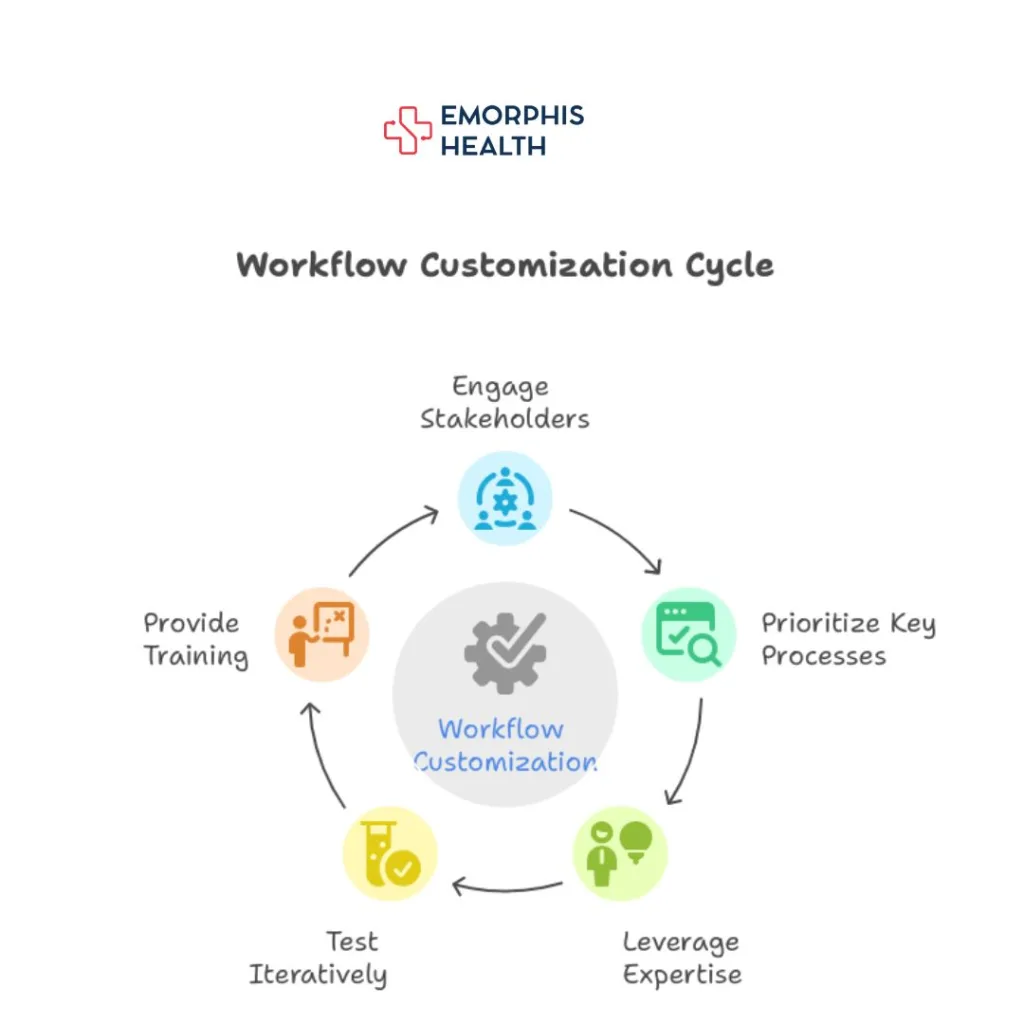

Streamlining Bahmni Workflows
Emorphis specializes in transforming Bahmni into a tailored solution through expert workflow customization. With deep experience in healthcare IT, Emorphis designs intuitive forms, automates repetitive tasks, and creates role-specific dashboards that enhance efficiency. Their client-focused approach ensures customizations align with clinical and operational needs, delivering measurable improvements in patient care and staff productivity.
By optimizing workflows, healthcare providers can harness Bahmni’s flexibility to deliver faster, more accurate care while reducing operational bottlenecks.
How to Leverage Integrations to Connect Systems and Improve Data Flow
Interoperability is a cornerstone of modern healthcare IT, enabling seamless data exchange between EMRs, laboratory systems, imaging platforms, and billing software. Bahmni’s robust integration capabilities, built on standards like HL7 and FHIR, ensure connectivity across systems, reducing errors and improving decision-making. A 2023 report by HIMSS found that interoperable systems improved clinical outcomes by 25% in integrated care settings.
The Importance of Integrations
Fragmented systems lead to data silos, manual errors, and delayed care. Bahmni’s integration features bridge these gaps by connecting critical systems, ensuring real-time access to patient data. Key benefits include:
- Error Reduction: Automated data transfer eliminates manual entry mistakes.
- Faster Decisions: Real-time lab results or imaging reports speed up diagnoses.
- Improved Patient Outcomes: Comprehensive data access supports holistic care.
Bahmni’s Integration Capabilities
Bahmni’s modular design supports integrations with:
- OpenMRS: Manages patient records and clinical data.
- OpenELIS: Enables real-time lab result integration.
- Odoo: Handles billing, inventory, and financial management.
- PACS/DICOM: Supports radiology imaging workflows via OVIYAM2.
Bahmni’s support for HL7 and FHIR ensures compliance with global standards, while its Atom Feed mechanism delivers dynamic data updates. RESTful APIs further enable custom integrations with third-party systems.
A district hospital in Nepal integrated Bahmni with OpenELIS to streamline lab workflows. Real-time test results reduced diagnostic delays by 35%, enabling timely treatment for over 10,000 patients annually. Similarly, a clinic chain in India connected Bahmni with Odoo to automate billing, cutting revenue cycle time by 22% and improving financial transparency.
Best Practices for Integration
To ensure successful integrations:
- Map Data Flows: Identify critical data points, such as lab results or patient demographics, for seamless exchange.
- Ensure Security: Use encryption and access controls to comply with HIPAA and local regulations.
- Test Thoroughly: Validate integrations in a sandbox environment to ensure data accuracy.
- Partner with Emorphis: Leverage Emorphis’ expertise in configuring HL7/FHIR integrations for Bahmni, ensuring robust interoperability.
- Monitor Performance: Regularly update integrations to accommodate system upgrades or new standards.
Building Seamless Bahmni Integrations
Emorphis excels in creating interoperable ecosystems with Bahmni, connecting EMRs, labs, and billing systems for unified data flow. Their team ensures secure, standards-compliant integrations that enhance operational efficiency and patient care, delivering turnkey solutions tailored to each facility’s needs.
By leveraging Bahmni’s integration capabilities, healthcare providers can create a connected digital infrastructure that drives better outcomes and operational excellence.
Advanced Reporting Capabilities: Unlocking Data-Driven Insights
Data is the lifeblood of modern healthcare, and Bahmni’s advanced reporting tools empower providers with actionable insights to optimize operations and improve patient care. From real-time dashboards to cohort analyses, Bahmni’s reporting features enable data-driven decision-making. A 2021 study showed that data-driven healthcare systems reduced operational costs by 15% while improving patient satisfaction.
Why Reporting Matters
Real-time reporting allows providers to monitor key performance indicators (KPIs) like bed occupancy, patient throughput, and treatment outcomes. These insights help:
- Optimize Resources: Identify bottlenecks in patient flow or supply chains.
- Improve Outcomes: Track treatment efficacy to refine clinical protocols.
- Support Advocacy: Use aggregated data for public health reporting or funding applications.
Bahmni’s Reporting Features
Bahmni Mart, the system’s reporting module, offers:
- Custom Reports: Tailor reports to track metrics like disease prevalence or appointment adherence.
- Cohort Analysis: Monitor patient groups over time, ideal for chronic disease management.
- Trend Analysis: Identify patterns, such as seasonal flu spikes, for proactive planning.
- Data Visualization: Dashboards and charts simplify complex data for quick interpretation.
A rural hospital in Uganda used Bahmni’s reporting tools to track malaria treatment outcomes, identifying a 10% improvement in recovery rates after adjusting protocols. In India, a multi-facility network leveraged Bahmni’s dashboards to monitor bed occupancy, reducing overcrowding by 18% through better resource allocation.
Practical Tips for Reporting
- Define KPIs: Focus on metrics aligned with goals, such as lab turnaround time or patient retention.
- Automate Reports: Schedule reports to deliver insights without manual effort.
- Train Staff: Equip teams to interpret and act on data.
- Integrate Data Sources: Combine EMR, lab, and billing data for comprehensive insights.
Unlocking Bahmni’s Data Potential
Emorphis enhances Bahmni’s reporting capabilities by building customized dashboards that provide real-time, user-friendly insights. Their analytics expertise ensures reports align with clinical and clinical priorities, empowering providers to make informed decisions that drive efficiency and outcomes.
By harnessing Bahmni’s reporting tools, healthcare organizations can transform data into tangible improvements in care delivery and operational performance.
AI Integration in Bahmni: Transforming Healthcare Delivery
Artificial Intelligence (AI) is revolutionizing healthcare by accelerating diagnostics, personalizing care, and automating workflows. Integrating AI into Bahmni unlocks transformative possibilities, enabling predictive analytics, clinical decision support, and enhanced patient engagement. A 2023 McKinsey report estimated that AI could save healthcare systems $360 billion annually by improving efficiency.
AI’s Role in Healthcare
AI enhances healthcare by:
- Faster Diagnostics: AI analyzes data to flag anomalies, speeding up interventions.
- Personalized Care: Machine learning tailors treatments to patient profiles.
- Workflow Automation: AI streamlines tasks like triage or appointment scheduling.
AI Applications in Bahmni
Bahmni’s open-source EMR and APIs support AI integration, enabling:
- Automated Triage: AI prioritizes patients based on symptom severity, reducing ER wait times.
- Diagnostic Support: Machine learning suggests diagnoses based on vitals and history, aiding clinicians in resource-constrained settings.
- Predictive Analytics: AI forecasts readmissions or disease outbreaks, enabling proactive care.
- Chatbots: AI-driven chatbots handle patient queries or reminders, improving engagement.
A hypothetical clinic in Malawi could integrate an AI triage tool into Bahmni, reducing emergency room delays by 25%. Similarly, an AI model analyzing TB patient data could predict treatment adherence, improving outcomes by 15%.
Challenges and Solutions
- Data Privacy: Bahmni’s encryption and HIPAA compliance address security concerns.
- Model Accuracy: Rigorous validation ensures reliable AI outputs.
- Infrastructure: Cloud or on-premise servers support AI computational needs.
Pioneering AI in Bahmni
Emorphis leads the way in integrating AI into Bahmni, developing custom models for diagnostics, analytics, and automation. Their expertise ensures seamless deployment, robust security, and measurable impact, transforming Bahmni into an AI-powered healthcare platform.
AI integration positions Bahmni as a forward-looking solution, enhancing care delivery and operational efficiency.
Custom Development for AI: Tailoring Bahmni to Your Specific Needs
Custom AI development allows healthcare providers to address unique challenges within Bahmni, such as predicting patient readmissions or optimizing resource allocation. By leveraging Bahmni’s APIs and open-source framework, facilities can build tailored AI solutions to drive clinical and operational excellence.
Steps for Custom AI Development
- Data Preparation: Clean and aggregate patient data from Bahmni’s OpenMRS database, ensuring compliance with privacy standards.
- Model Training: Use frameworks like TensorFlow or PyTorch to train models on relevant datasets, such as vitals for sepsis prediction.
- API Integration: Connect AI models to Bahmni via RESTful APIs for real-time predictions.
- Deployment: Deploy models on cloud platforms like AWS or local servers, with rigorous testing.
- Monitoring: Continuously retrain models to maintain accuracy as data evolves.
Technical Requirements
- APIs: Bahmni’s RESTful APIs enable seamless AI integration.
- Frameworks: TensorFlow or scikit-learn support model development.
- Infrastructure: Cloud or on-premise servers handle computational needs.
- Collaboration: Clinicians, data scientists, and Emorphis ensure successful implementation.
Supercharging Bahmni with Custom AI
Emorphis specializes in custom AI development for Bahmni, delivering solutions like predictive analytics and diagnostic support. Their end-to-end approach—from data preparation to deployment—ensures AI models align with clinical needs, driving measurable outcomes.
Custom AI development empowers healthcare providers to tailor Bahmni to their unique challenges, enhancing its impact on care delivery.
Conclusion: Empowering Healthcare Providers with Bahmni’s Full Potential
Bahmni is a powerful platform for transforming healthcare delivery, offering unmatched flexibility through workflow customization, seamless integrations, advanced reporting, and AI-driven innovations. By tailoring workflows, providers can reduce wait times and boost efficiency. Integrations with systems like OpenELIS and Odoo ensure real-time data flow, improving decision-making. Advanced reporting delivers actionable insights, optimizing operations and outcomes. AI integration and custom development position Bahmni as a future-ready solution, enabling predictive analytics and personalized care.
Emorphis plays a pivotal role in unlocking Bahmni’s potential, delivering tailored customizations, robust integrations, insightful reports, and cutting-edge AI solutions. Their expertise ensures healthcare providers achieve measurable improvements in efficiency, care quality, and patient satisfaction.
As healthcare demands grow, Bahmni empowers providers to deliver high-quality, data-driven care, particularly in low-resource settings. We encourage IT professionals, administrators, and decision-makers to explore Bahmni’s capabilities, engage with the vibrant Bahmni community at www.bahmni.org, and partner with Emorphis to implement tailored solutions. Share your Bahmni experiences or reach out to Emorphis for support in transforming your healthcare delivery. Together, let’s unlock greater value from Bahmni and redefine the future of healthcare.

